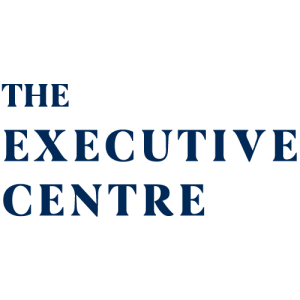- Companies want both the collaborative atmosphere the physical office provides and the flexibility to support remote working for their employees
- Demand for flexible workspace increasing amid uncertainty as companies look for cost-management solutions
While the pandemic has led many to believe remote work will become the norm, concerns about lagging creativity and loneliness demonstrate that there is still a role for the office in a post Covid-19 world, according to The Executive Centre (TEC).
While there are advantages to working from home, such as reduced commuting times, costs and pollution, there are also disadvantages for businesses and employees. In a video produced in association with Business Reporter, Paul Salnikow, founder and CEO of TEC, discusses what the future of work could look like.
“Being one of Asia’s largest premium flexible workspace operators give us a good insight into how companies have been adapting,” he says. “Once our centres reopened, we found our members were looking forward to coming back as they missed the social interaction their office provided.” Other disadvantages to remote working include a disruption to creative thinking and the additional logistical steps required to ensure business can continue as usual.
The situation has also made it difficult for companies to accurately predict headcount. “What we’re seeing now is a re-evaluation by organisations of their office strategy,” Salnikow says. “The current market uncertainty is creating huge demand for the flexible workspace sector as companies try to manage costs and become less willing to commit to long-term leases.” Vast resources are wasted paying leases for real estate businesses simply don’t need. Flexible working spaces are a vital way of ensuring that no longer happens.
“Every healthy business needs to consider what mix of traditional and flexible is right for its teams and their work,” says Senior Development Director of TEC, Todd Liipfert. “Sales teams who need to work both remotely and in different places will benefit from flexible access to broad networks. Creative teams that use the office as a place to spark ideas need more permanent and fixed spaces.”
The workspace of the future must be agile and versatile to adapt to unprecedented and unpredictable challenges that are becoming more common in our society. Wherever and however, businesses choose to move forward post Covid-19, there will be a workspace trend where professionals place higher value on their flexibility.
For more details, watch the video on https://bit.ly/3eeD8I7, or by scanning the QR code.
This press release has been provided by Business Reporter, www.business-reporter.co.uk.
About Business Reporter
Business Reporter is distributed with The Daily Telegraph, The Sunday Telegraph and City AM, with each publication reaching an average of 1.5 million people.
Content is also published through the Business Reporter and teiss websites, which include video debates, online articles and digital magazines, delivering news and analysis on the issues affecting businesses to a global audience.
Business Reporter also hosts conferences, breakfast meetings and exclusive summits, events which bring together some of the most influential decision makers and innovators in modern business. These exclusive events for business leaders give Business Reporter direct contact with readers and help to inform the content and direction of its editorial projects.
Business Reporter is committed to the UN Sustainable Development Goals, and was the first UK member of the UN SDG Media Compact. We have launched a website dedicated to showcasing the work of companies towards these goals at 17globalgoals.com.
Business Reporter is committed to providing meaningful analysis to everyone in business. Whether you’re running a small business, the head of a local company or an executive in a multinational corporation, there’s something for you at Business Reporter.
For more information please visit www.business-reporter.co.uk.
About The Executive Centre
The Executive Centre (TEC) opened its doors in Hong Kong in 1994 and today boasts over 135+ centres in 32 cities and 14 countries. It is the third largest serviced office business in Asia with annual turnover in excess of US$275 million.
The Executive Centre caters to ambitious professionals and industry leaders looking for more than just an office space – they are looking for a place for their organization to thrive. TEC has cultivated an environment designed for success with a global network spanning Greater China, Southeast Asia, North Asia, India, Sri Lanka, the Middle East, and Australia, with sights to go further and grow faster. Each Executive Centre offers a prestigious address with the advanced infrastructure to pre-empt, meet, and exceed the needs of its Members. Walking with Members through every milestone and achievement, The Executive Centre empowers ambitious professionals and organizations to succeed.
Privately owned and headquartered in Hong Kong, TEC provides first class Private and Shared Workspaces, Business Concierge Services, and Meeting & Conference facilities to suit any business’ needs.
For more information please visit www.executivecentre.com.
Press Enquiries
Finsbury
Sheena Shah / Crystal Chow
Sheena.Shah@Finsbury.com / +852 3166 9855
Crystal.Chow@Finsbury.com / +852 3166 9838

